Top 18 Zinc-Rich Foods For Vegetarians
By Dr. Malavika Athavale +2 more

Get,

to manage your symptom
Get your,


4 Cr+ families
benefitted

OTP sent to 9988776655



You’ve successfully subscribed to receive
doctor-approved tips on
Whatsapp

Get ready to feel your best.

Hi There,
Download the PharmEasy App now!!


Register to Avail the Offer
Send OTPBy continuing, you agree with our Privacy Policy and Terms and Conditions

Hi There,
Sign up on PharmEasy now!!
Trusted by 4 crore+ families

OTP sent to 9988776655



You have unlocked 25% off on medicines




Code: NU25
By Dr. Malavika Athavale +2 more
Table of Contents
People these-days are getting very particular about their health and are focusing on natural ways to build their immunity. Their attention is diverting towards consuming a good diet rich in essential nutrients which helps strengthen the immune system, and the mineral zinc plays a crucial role when it comes to boosting immunity and improving health.
Zinc is a trace mineral that plays an important role in many body functions. About 60% of zinc is present in the muscles, 30% in bone, hair, skin and plasma, and some in organs like pancreas, liver, kidney and brain. Zinc is essential for healthy immunity because of its role in the activation of T lymphocytes and enhancing functioning of natural killer cells (major components of your immune system). It is also vital for over several enzymes in the body, and plays a role in protein synthesis, wound healing, DNA synthesis, and is necessary for a proper sense of taste and smell1.
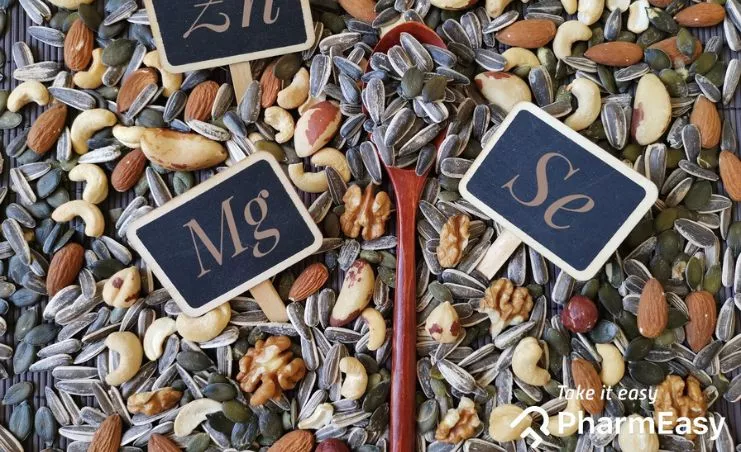
Zinc deficiency is a common issue because your body doesn’t store it, so you need to get enough zinc from your daily diet. Knowing the right food items to choose can help boost your zinc levels and maintain proper functioning of the body including immune support. In this blog, we will discuss about some food sources that are rich in zinc and can keep your health in good shape.
Before we move onto the sources, let’s understand the daily requirement of zinc by our body.
Actually, only a small amount of zinc is needed to maintain good health. According to ICMR 2020, the recommended daily allowance of zinc for women is 13.2 mg and for men is 17mg. For pregnant women, the recommended daily intake of zinc is 14.5 mg, and for breastfeeding women, it is 14.1 mg2.
Though the requirement of zinc by the body is minimal, it is essential for proper functioning. Low levels of zinc may cause diarrhoea, stunted growth, hair fall, eye, and skin lesions, loss of libido, and suppressed immunity.
I may suggest a fantastic option for all the veggie lovers out there who want to ensure they’re getting enough zinc: raw green peas! These vibrant little green gems might not only be delicious but are also packed with this essential mineral. In fact, 100 g of raw green peas may provide you with approximately 1.24 mg of zinc19.
Dr. Siddharth Gupta, B.A.M.S, M.D (Ayu)
Animal foods are considered to be the best sources of zinc. Since there are lesser plant-based sources of zinc available, vegetarians are more likely to fall short on this mineral. However, there are some best plant-based sources of zinc available for vegetarians. These include the following –
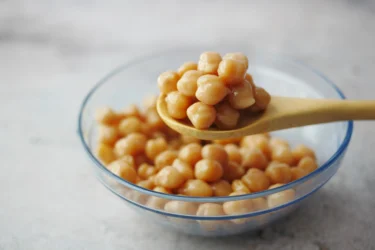
Indians commonly use chickpeas in their meals. If you want to fill your zinc requirement without eating meat, then chickpeas are the best option. A small cup containing 100g of raw chickpea will provide 2.7 mg zinc3. You can use chickpeas in curries, salads, or snacks.
I would recommend boiled lima beans if you’re looking to boost your zinc intake. These mighty legumes might not only provide a burst of flavour but may also offer a valuable source of this essential mineral. They boast an impressive 1mg of zinc per 100 g of boiled lima beans18!
Dr. Rajeev Singh, BAMS
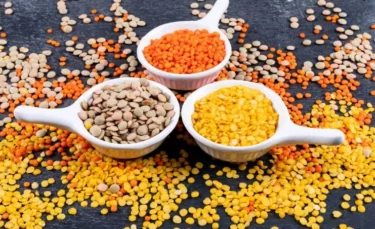
Lentils are the best source of zinc. They are also low in fat and calories, and contain essential nutrients like proteins and fiber. A cup of approximately 100gms contains zinc about 3.31 mg in whole and 3.6 mg of in dal lentil4. Use them in regular meals in the form of curries.
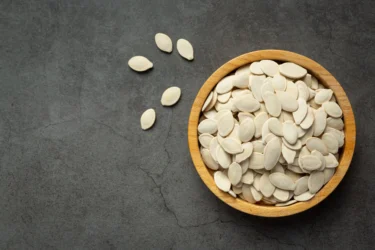
Pumpkin seeds are super versatile and easy to add to countless meals. 100gm of pumpkin seeds contain 7.8 mg of Zinc5. Consuming a diet rich in pumpkin seeds could increase immunity and fight inflammation in the body.
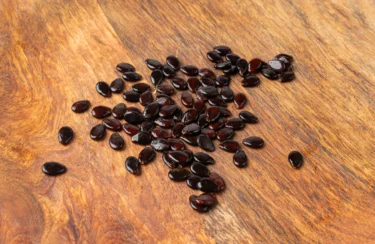
While having fresh watermelon juice, don’t throw its seeds. Believe it or not, watermelon seeds are highly nutritious, containing zinc and other micronutrients. 100gm of watermelon seeds contain 10.13 mg to 10.24 mg of zinc6, you can dry them and eat them as a daily snack. These seeds help enhance immunity and may aid in keeping your heart healthy.
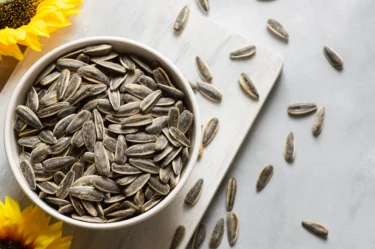
Sunflower seeds are a rich source of zinc. About 100g of sunflower seeds contain 5mg of zinc7. These can also be healthy for your heart and boost energy levels. Sunflower seeds can be consumed raw or roasted. You can add them to seed trail mix or oatmeal porridge for a tasty and healthy snack.
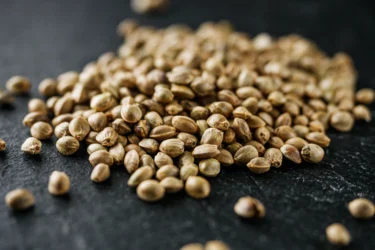
Hemp seeds are loaded with unsaturated fats and zinc. 100g of chia seed gives 7mg of zinc9. Hemp seeds are also rich in amino acids arginine, which may help to reduce the risk of heart diseases. Try sprinkling them on yoghurt or salads.
Based on my experience, if you’re on the lookout for a zinc-rich food, look no further than chia seeds. These tiny seeds might not only be versatile but also packed with nutrients, including zinc. Just 100 g of chia seeds may contain 4.58 μg of zinc8, making them an excellent option for all the veg folks out there.
Dr. Smita Barode, B.A.M.S, M.S.
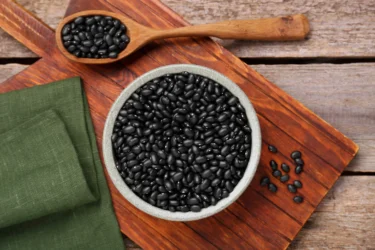
Beans are another excellent source of zinc, especially kidney and black beans. These beans are also high in soluble and insoluble fibers, proteins, iron, phosphorus, and calcium that support overall health. A cup of black beans (100g of raw rajmah) contains 3.08 mg of zinc, and a half cup of cooked kidney beans contains 0.9 mg of zinc. While 100g raw Cowpea (chawali) and moog dal will give 3.57 mg and 2.49mg of zinc, respectively.
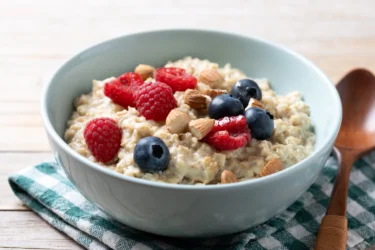
Oats are the classic breakfast because it is a nutrient-dense food item. Oatmeal is loaded with zinc, fibers, folate, vitamin B6 and beta-glucan. About half a cup of oats contains 1.3 mg of zinc10. Oats can also help regulate cholesterol levels and keep your heart healthy.
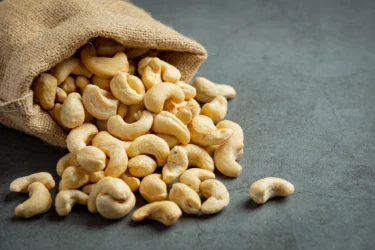
Cashews are one of the delicious options to get natural, plant-based zinc. Whether you eat them raw or roasted, you will get about 5.34 mg of zinc from 100g of cashew nuts (approx. 6 number (14.5g) will provide 0.77mg of zinc). They are rich in vitamin A, vitamin K, copper, folate, and healthy unsaturated fat. Eating cashews may also be healthy for the heart by promoting good cholesterol11.
I may have a great recommendation for all the vegetarians. Did you know that pecans might be an awesome choice to get your zinc fix? These tasty nuts might not only make a delightful snack but may also pack a punch when it comes to getting your zinc dosage. Only 100 g of pecans may contain a whopping 4.53 mg of zinc17!
Dr. Anuja Bodhare, B.A.M.S, M.D (Ayu)
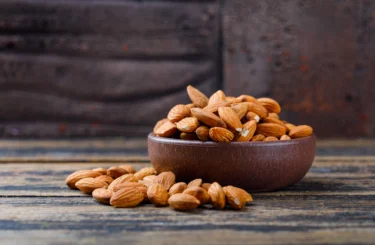
Almonds are not just excellent sources of energy they’re also jam-packed with nutrients. Almonds are great sources of zinc, protein, calcium, magnesium, phosphorus and fiber. A handful of almonds can be a healthy, energy-rich snack as well as an easy way to boost your zinc levels. 100g of almond gives 3.5mg of zinc (12 number or 14g will give 0.49mg of zinc). Almonds can also be added to a variety of dishes, from desserts to Mughlai cuisine.
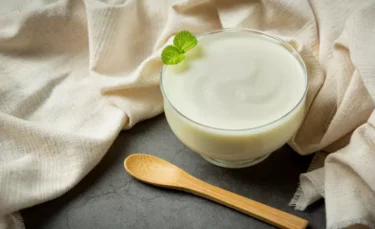
A low-fat curd or yoghurt gives us good bacteria for a healthy gut and also provides enough amount of zinc. A cup of curd or yoghurt contains 1.5 mg of zinc. It is best for digestion and for boosting your immunity13.
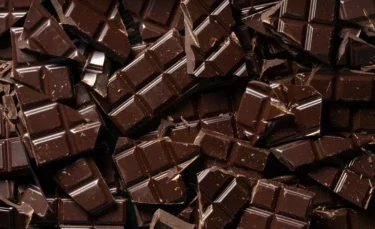
Dark chocolate is loaded with zinc. A hundred grams of dark chocolate contains 3.5 mg of zinc12. But dark chocolate is also rich in calories and sugar, therefore consume it in moderation.
I may advise incorporating flax seeds in your diet if you’re looking to up your zinc game. These tiny wonders are not only packed with goodness but also happen to be a fantastic source of zinc. With a generous 4.34 mg of zinc per 100 g, they may be an excellent choice to fulfill your nutritional requirements16.
Dr. Ashok Pal, BAMS
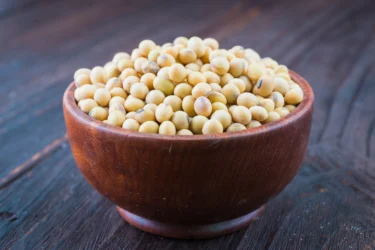
Soyabean is a popular vegetarian as well as vegan food option that offers a good amount of zinc per serving. About 100 grams of this can contain about 4.01mg of zinc14. Moreover, Soyabean can be used for several different kinds of recipes, making it a versatile source of zinc Tofu prepared from soyabean can be a good option suitable for several recipes.
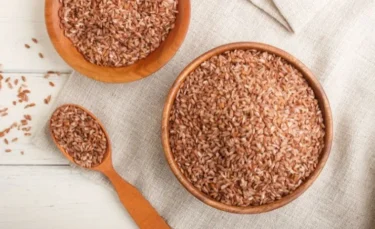
Any type of unprocessed rice, be it brown, red or black is a good source of zinc for vegetarians. This type of rice is also known as wild rice and it provides 1.6 mg of zinc in every 100 grams. You can sauté them with veggies to make a wholesome meal.
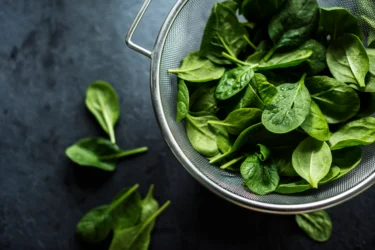
This list is incomplete without this green leafy vegetable that is often considered the best source of vitamins and minerals for vegetarians15. It provides about 4 mg of zinc in every 100 gms of serving, making it one of the healthiest foods on this list.
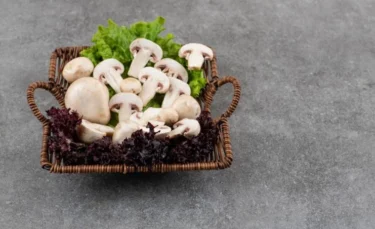
Last but not least, button mushrooms and shiitake mushrooms are also high sources of zinc. In a 100-calorie serving of white button mushrooms, there is about 8 mg of zinc. In a similar 200-calorie serving of shiitake mushroom, there is 5 mg of zinc. Along with an attractive umami flavour, these mushrooms can also be considered a great vegetarian source of zinc.
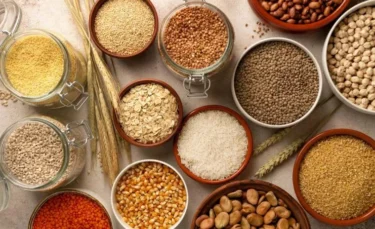
The cover or top part of grains is usually one of the most mineral-rich parts of the seed. Typically, during the production of refined flours, the germ is removed, lowering the nutrient value. Apart from having a good amount of zinc, these also contain numerous vitamins, minerals, and ample fiber making it a healthy food choice.
100g of whole wheat gives 2.85 mg of zinc, which means one medium size chapatti (25g of wheat flour), gives 0.71mg of zinc.
Other whole grains like samolina (rawa) 100gm gives 2.13 mg of zinc, 2 tbs gives 0.63 mg of zinc (around ¾ cup of upama /sheera ).
Bajara is also good source giving about 2.76 mg of zinc /100g.
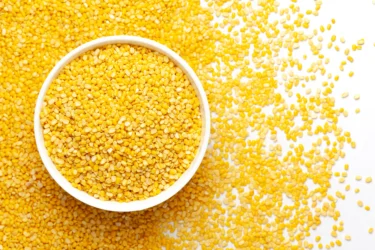
Moong is a type of bean also called moong dal and is consumed widely across India. It can be eaten raw, boiled, sprouted or whole. Moong has a zinc content of about 2.6mg per 100g. This makes it an excellent source of zinc, a daily serving can provide up to 24% of your daily requirement. Sprouted moong is the healthier option as it offers better absorption of minerals like zinc.
Moreover, Indian spices like ajawain (5.67mg ), mustard seeds (4.03mg ), khus khus seed ( 6.38mg ) / 100g are also good source of zinc. Adding these to your favourite dishes doesn’t only enhance the taste but also adds on the health benefits.
Zinc is an essential mineral required by the body for proper functioning. Zinc is present in many natural sources such as meat, seafood, beans, legumes, seeds, and nuts. If you are vegetarian or vegan, then you need to increase your intake by eating plant-based sources like cereals. These foods are easily available and delicious addition to your routine diet. Adding zinc-rich foods to your diet is a natural way to support your immune system and keep infections at bay. However, if you feel you have a low immunity, consult your doctor to understand the underlying cause and appropriate management.
Disclaimer: The information provided here is for educational/awareness purposes only and is not intended to be a substitute for medical treatment by a healthcare professional and should not be relied upon to diagnose or treat any medical condition. The reader should consult a registered medical practitioner to determine the appropriateness of the information and before consuming any medication. PharmEasy does not provide any guarantee or warranty (express or implied) regarding the accuracy, adequacy, completeness, legality, reliability or usefulness of the information; and disclaims any liability arising thereof.
Comments

Leave your comment...
You may also like
Comments